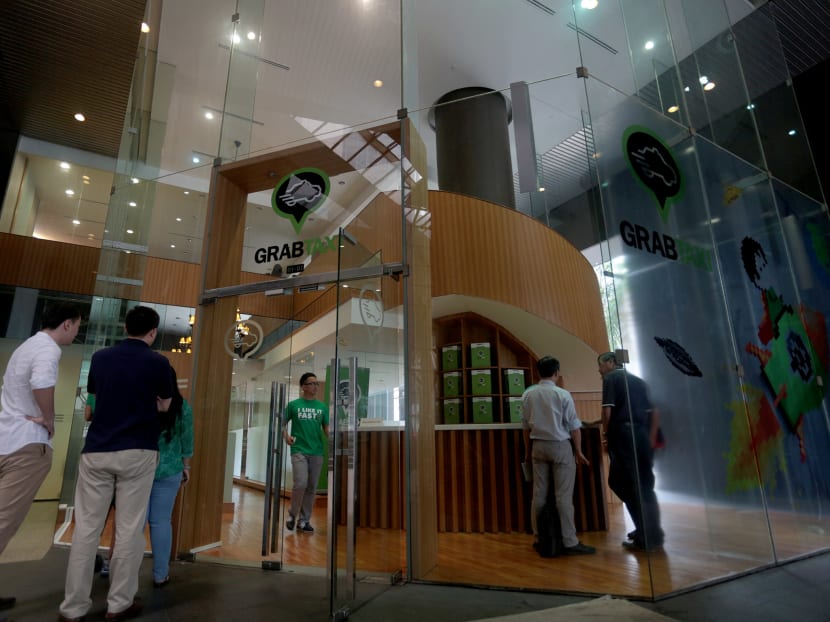Disruption ‘brings opportunities for those that are quick to strike’
SINGAPORE — The upheaval brought about by technology and globalisation is not all doom and gloom, said Prime Minister Lee Hsien Loong in his National Day Rally speech yesterday. New opportunities are arising from disruption, but in order for companies and workers to make the best of it, they will have to either adjust to embrace this change, or find themselves at the losing end of this new era.
SINGAPORE — The upheaval brought about by technology and globalisation is not all doom and gloom, said Prime Minister Lee Hsien Loong in his National Day Rally speech yesterday. New opportunities are arising from disruption, but in order for companies and workers to make the best of it, they will have to either adjust to embrace this change, or find themselves at the losing end of this new era.
“Among all the economic issues we are dealing with: Slower growth, helping people upgrade, strengthening social safety nets. The defining challenge that we face in this era is disruption. Things are changing fast, old models are not working, new models are coming fast … and disruption will happen over and over again relentlessly,” said Mr Lee.
Mr Lee cited the example of ride-hailing apps Uber and Grab, which have disrupted the taxi industry, causing drivers in cities such as London, Sydney and Jakarta to demand their governments block these new services and protect their existing way of doing business.
Singapore could have responded in two ways: Close itself off and try to stop people from using the new technology; or embrace change and let the disruption happen.
The Government decided on the latter, updating its rules to foster fair competition while protecting commuters. This includes requiring all drivers of taxis, Uber or Grab to have proper insurance and clean records.
But Mr Lee also recognised that the playing field is still not quite level: Taxis are subject to extra rules that make them more costly to operate, while Uber and Grab are not allowed to do street hails and enter taxi stands.
“We will progressively sort all these things out, but I think we all know that we can’t stop progress and even Uber and Grab are going to be disrupted … Next year, we’re going to start a trial of driverless taxis in one-north,” said the Prime Minister.
In the retail industry as well, disruption is taking place, with more people spending time online. This change has affected shops along Orchard Road. Given that the retail scene employs 125,000 workers in 16,000 companies, businesses and workers have to adapt.
One opportunity arising from the rise in online shopping is that more delivery vans are now needed — an area Singapore can play a major role in given its status as a transport and financial hub.
“(We) need an overall strategy to be able to spot where the changes are coming from, to respond when things are disrupted and to keep our economy growing so that our companies can be resilient, able to keep on finding new ways to do business, able to keep on employing Singaporeans in good jobs,” Mr Lee said.
This is what the Committee on the Future Economy is set up for. Chaired by Finance Minister Heng Swee Keat and Minister for Trade and Industry (Industry) S Iswaran, the committee will look into helping companies build capabilities, and one promising area is the digital space.
“Digital is virtual. It doesn’t require large areas of land, it will save labour and we can do business with anyone, from anywhere,” said Mr Lee, adding that Singapore has small and medium enterprises (SMEs) in other sectors that can compete with the best in the world and should also receive help to scale up.
“Beyond building up capabilities, we should also promote entrepreneurship … (Entrepreneurs) play an important role not just because they’re doing business for themselves and creating jobs and prosperity, but also because they’re resourceful, they’re optimistic. They give our society the confidence that anything is possible,” he said.
The Government launched an incubator at Block 71 Ayer Rajah five years ago to support entrepreneurs with work spaces and co-funding. Today, the initiative — now known as Launchpad — has expanded to two more blocks and even to San Francisco to help start-ups tap the US market and Silicon Valley network.
“It is still early days, but it looks promising. Our start-ups are growing, investors are paying attention, venture capitalists and some of the big tech companies are coming here. Google, PayPal, Facebook are setting up here because they see promising talent, interesting start-ups and maybe the next Google, Facebook or Alibaba may come from Singapore,” Mr Lee said.







